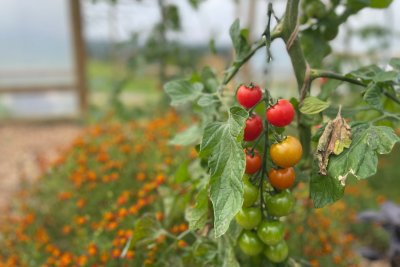Our response to food white paper- "A feeble to do list, that may or may not get ticked'
Today the Government finally published its response to the National Food Strategy (NFS) which was published in July 2021. The NFS had clear analysis researched over two years and a set of 14 recommendations. The Government response looks painfully thin by comparison.

The paper includes:
- A commitment to a land use strategy by 2023
- A consultation on mandatory reporting by industry on health, and 'explore' the same on environment and animal welfare
- A consultation on public food procurement, with the goal of 50% local or higher standard food
The Government food strategy has nothing to say on how to ensure people can afford to eat well in the current cost of living crisis and pushes all consideration of the impact of the junk food cycle into the forthcoming health disparities white paper.
Kath Dalmeny, Chief Executive of Sustain says:
“In the face of multiple crises in the cost of living, rocketing obesity, climate change and nature loss, the government food strategy looks shamefully weak. Government was given crystal clear analysis and a set of recommendations by the Dimbleby food strategy, and has chosen to take forward only a handful of them. This isn’t a strategy, it’s a feeble to do list, that may or may not get ticked.
“The commitment to a land use strategy is welcome, which could better balance our food production and responsibility to our natural environment. Support for sustainable UK horticulture could improve affordable access to healthy fruit, veg and pulses. The push to include more local and sustainable food in public sector food, if implemented, could have a powerful impact. And a move to introduce mandatory reporting for food businesses on health would be a step forward. But none of this is underpinned by legislation.
“In this document, the Government acknowledges the National Food Strategy analysis that a junk food cycle exists, and that people on lower incomes find it harder to access an affordable healthy diet. However, the recent government U-turn on child obesity measures has shown that even measures introduced in statute are vulnerable to pressure from vested interests. And where is the support for people struggling to eat in this cost of living crisis? We need decent wages and adequate social security benefits to weather the current storm. The Government will need to take much more and stronger action soon if it is to drive the changes in our food system needed to protect people and the planet.”
Further comment on specific aspects of the white paper
Vicki Hird head of sustainable farming at Sustain says:
"While the commitment to publish a land use framework in 2023 is to be welcomed, how it will be implemented is key. Otherwise, the Government's food strategy falls way short on farming. It mostly reaffirms existing policies and budgets, like the Environmental Land Management Schemes and innovation funds, and offers up some consultations and evidence gathering on horticulture and methane from livestock. The lack of action to support a transition to more agroecological farming, supported in Dimbley's food strategy, is a clear omission. So too, is the worrying absence of supporting a shift to shorter, fairer and more resilient food supply chains."
Barbara Crowther of the Children's Food Campaign says:
“Since the Government food strategy was delayed for the first time in July there has been a 57% leap in household food insecurity. Just last week we learned that 800,000 children living in poverty are not eligible for free school meals or free holiday activity and food support. The government’s analysis of food insecurity focuses instead on growing more cucumbers. But what of the UK citizens who can’t afford to buy them? We need to make healthy food affordable to all, providing nutritional safety nets for those without the means for a food shop.
“This is not a comprehensive food strategy when it fails to offer any new measures to address either the cost of living or the human and social cost of obesity. On the one hand it acknowledges Henry Dimbleby’s analysis of a junk food cycle but on the other does nothing to address it, whilst key measures to rein in the industrial marketing power of the junk food industry are also now delayed. It leaves the forthcoming health disparities white paper with a huge task to get the obesity strategy and work to reduce dietary inequalities back on track. We can only hope that the health department can do a better job than the one in charge of food supply.”
On trade, Orla Delargy, head of public affairs at Sustain added:
"The lines on trade in the Government's white paper are so weak that they are virtually meaningless. Despite more than two million people calling for food standards to be protected in law, the Government has ploughed on with liberalising trade with Australia without publishing a set of core standards that imports must meet. The Trade and Agriculture Commission has told the Government there are genuine concerns about unfair competition from Australian producers who use pesticides that the UK doesn't, or at a volume much higher than in the UK. They also made it clear that border agencies would need to be adequately resourced to perform adequate checks - but parliamentarians are already raising concerns about these not being in place. The Government needs to produce a trade strategy and put a set of core standards in place as soon as possible. The Trade and Agriculture Commission has confirmed that it is possible to do so."
Published Monday 13 June 2022
National Food Strategy: Launched in two parts over 2020-2021, the National Food Strategy is an independent review commissioned by government to set out a vision and a plan for a better food system.





